Higher energy efficiency - an imperative from the current sustainability megatrend
According to the International Energy Agency (IEA), electricity demand will increase by up to more than 60 percent in the current decade, depending on the region.
The reasons for this are the electrification of mobility and the use of more and more electrical appliances such as air conditioners and heat pumps. Last but not least, the conversion of various industries such as the chemical or steel industry to new processes that want to use hydrogen as an energy carrier or educt also plays a role. After all, this is also produced by means of hydrolysis through the use of electric power.
All these changes are leading to competition for electricity as a resource. Even with rapid expansion of generation capacities, the result is likely to be rising electricity prices and rising CO2 emissions, since a large proportion of the global electricity mix is still based on fossil fuels.
The latter is poison for fighting the climate change, the former for the profitability of energy-intensive companies such as refrigeration plant operators, whose operating costs are largely caused by their electricity consumption.
How can both negative effects be avoided or at least mitigated? The answer lies in increasing the energy efficiency of companies and, consequently, of your plants. There are several ways to achieve this.
One of them is the acquisition of new, technologically advanced equipment. However, not every company can afford capital-intensive investments. Another option is retrofitting, i.e. retrofitting existing plants. This also includes changing the lubricants used. In fact, increases in energy efficiency of several percent can be achieved by using precision-fit, high-performance synthetic lubricants instead of mineral oil-based lubricants.
This type of upgrade is also possible for refrigeration systems or in the case of refrigeration compressors.
How can energy savings be realized in refrigeration systems with the help of lubricants and application knowledge?
Lubricants basically have various functions in a tribological system.
In refrigeration compressors, these include reducing friction as well as removing heat from heat-stressed areas. In screw compressors in particular, the lubricant also performs a sealing function by closing the gap between the two rotors in the compression chamber, thus preventing the refrigerant from flowing back from the high-pressure side to the low-pressure side. In addition, the tendency to evaporate as well as the change in viscosity over a longer period of time plays a major role in the energy efficiency of a compressor system.
Above all, a lubricant's tendency to evaporate and its resistance to aging determine the formation of residues and thus the cleanliness of a system. That a clean system runs more efficiently than a dirty one is self-explanatory. In short, the better a lubricant performs the functions listed, the higher is the energy efficiency of a refrigeration system in the end.
The lubricants themselves differ significantly in the dimensions of base oil, additives and viscosity. Even within these dimensions, there are considerable differences in quality. In other words, even the same type of base oil, for example, hides different qualities that ultimately determine the performance of the lubricant used.
Basically, it can be stated that synthetic high-performance lubricants are superior to mineral oil-based products. Nevertheless, it is important to select the right high-performance lubricant with care to avoid problems with seals or with compatibility with the previously used lubricant.
Proof of energy savings by means of measurements
Synthetic high-performance lubricants differ not only in their superior performance, for example, compared with mineral oil-based products, but also in their much higher price. Nevertheless, their use is generally worthwhile not only from an environmental point of view but also from an economic one.
However, an estimate of the energy and cost savings is not always sufficient for a well-founded investment decision. Especially not if a changeover to a high-performance lubricant is appropriate as a measure to increase energy efficiency as part of a monitoring audit of an ISO 50001 certification. Concrete proof of increased energy efficiency by means of measurements can then help.
There are different approaches to prove the increased energy efficiency of the equipment and thus also the energy savings. A common mistake here is the assumption that a quick glance at the electricity meter is enough. This is, of course, only a snapshot that merely represents the current electricity consumption in an unknown operating state.
Precisely to prevent such errors, there are standards that define how a measure to increase energy efficiency is to be measured to be able to make a reliable statement at the end regarding the savings achieved. The best-known standards include the following:
- the International Performance Measurement and Verification Protocol
- the ISO 50015
Both standards are very similar in content and, among other things, make the statement that verification of energy savings is not possible or meaningful without considering the influencing factors (influence on the energy consumption of a system).
Sources:
IEA, Electricity demand outlook in selected regions/countries in the Stated Policies Scenario, 2019-2030, IEA,
Paris
Alexander Leis, New Business Development Manager at Klüber Lubrication
Klüber Lubrication
Klüber Lubrication not only offers its customers expertise when it comes to selecting the right lubricant, but also carries out corresponding measurements according to international standards on the customer's plant if required as part of the "KlüberEnergy" service program (see Figure 2). The measured
The KlüberEnergy Service Program has achieved energy savings on several refrigeration plants. For example, a reduction in energy consumption of more than 3 percent or around 28 MWh per year was achieved and verified on a refrigeration compressor of an Italian food manufacturer.
Together with the cost savings resulting from the longer service life of the Klüber Lubrication lubricant, the savings add up to more than EUR 4,300 per year with a payback period of only 4 months. The absolute savings will now be maximized by converting all refrigeration compressors to Klüber Lubrication's lubricant.



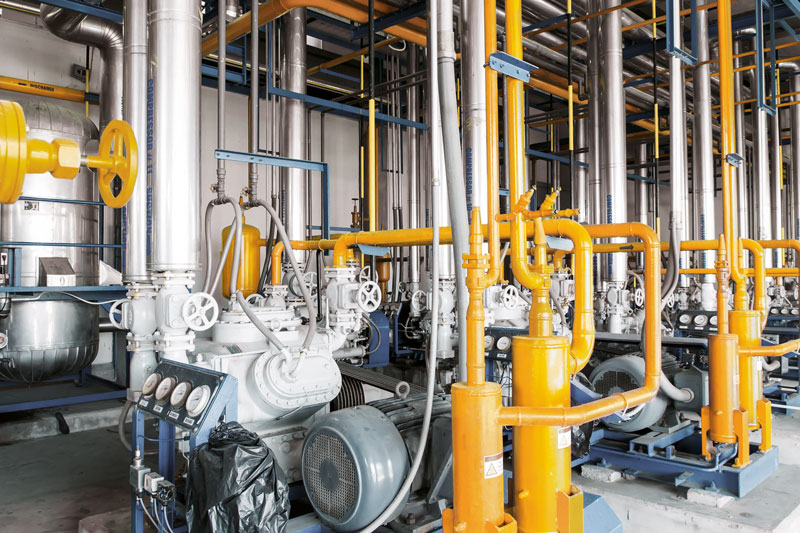
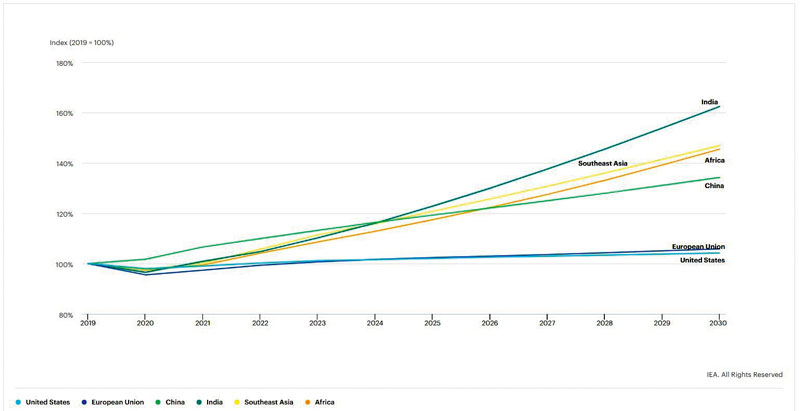
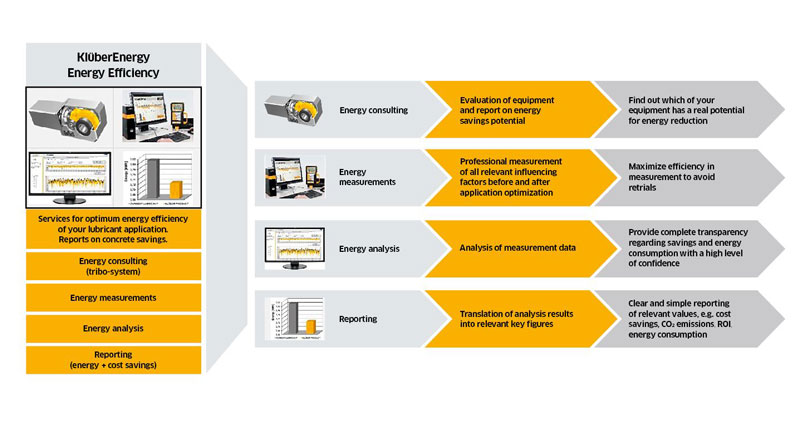
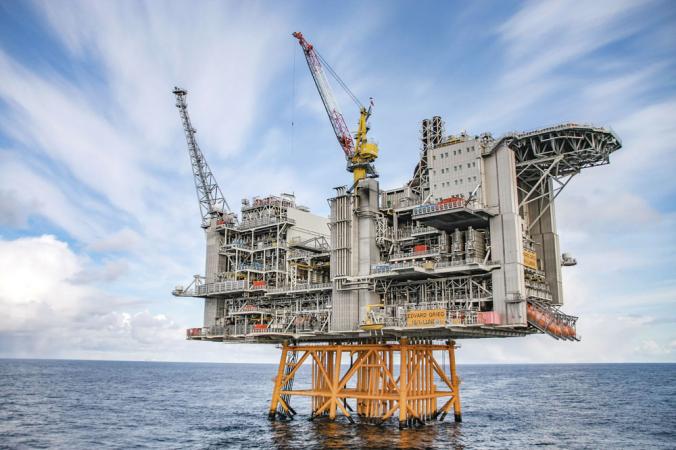
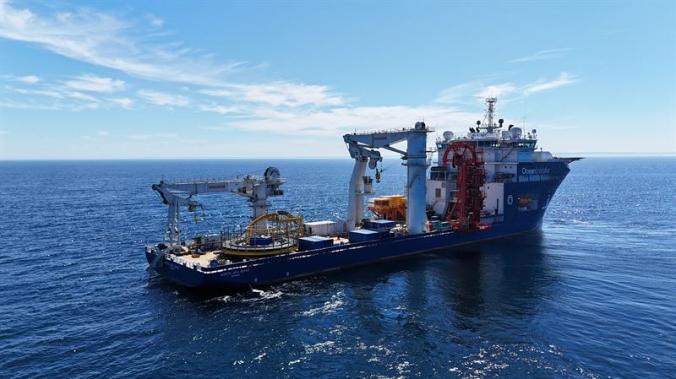
![EMR_AMS-Asset-Monitor-banner_300x600_MW[62]OCT EMR_AMS-Asset-Monitor-banner_300x600_MW[62]OCT](/var/ezwebin_site/storage/images/media/images/emr_ams-asset-monitor-banner_300x600_mw-62-oct/79406-1-eng-GB/EMR_AMS-Asset-Monitor-banner_300x600_MW-62-OCT.png)



